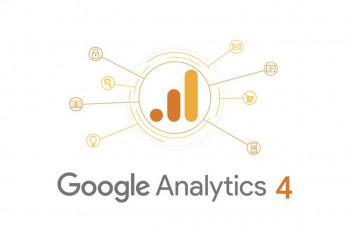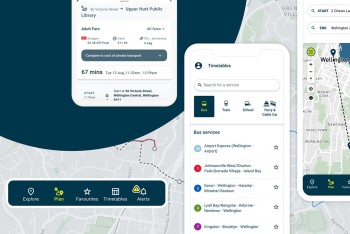You have heard it all before... “SEO is Dead!” But is it really? If you’ve ever asked yourself, “Is SEO dead?” then you’re not alone. Let us investigate further and see if SEO is truly at the end of its time or if it will still be thriving throughout 2025.

Now before we dive into the reasons why people think SEO is no longer an effective digital marketing effort, let's first define SEO and the role it plays
SEO (Search Engine Optimisation) is the process of optimising a web page to increase the relevance of its content, structure, and overall performance in order to rank higher on the search engine results pages (SERPs). The aim of SEO is to boost your visibility to potential customers and to drive more organic traffic, which often translates into increased conversions, leads, or sales.
Below, we will explore why some people believe SEO is on its way out, investigate how search is continually adapting, and outline why SEO remains a key component of digital marketing strategies in 2025 and many years to come.
Why Do People Think SEO Is Dead
Algorithm Updates
Google algorithm updates along with other search engines are notorious for rolling out frequent changes which often cause temporary fluctuation in rankings, leading some website owners to panic and assume that all their SEO efforts have gone to waste. When businesses witness their positions drop or their traffic dip unexpectedly, a common (though misguided) reaction is to believe SEO no longer works.
In reality, these core updates are often designed to refine search engine results and improve the user experience. Websites following ethical, high-quality optimisation strategies typically survive these changes, sometimes even reappear stronger than before. Businesses that rely heavily on quick wins or black-hat SEO techniques, however, are who face the backlash of these updates.
Increased Competition
Digital Marketing has grown rapidly over the past decade, and as a result.. competition for top rankings has become alot harder to achieve. Almost every business and organisation wants a piece of the organic search pie. With millions of blogs, product pages, and services published every day, it’s no surprise that many marketers feel it’s more challenging than ever to cut through the noise.
The increase of competition has caused some to believe that pushing for high organic rankings is no longer worthwhile. In truth, while standing out may be more challenging now, that doesn’t make SEO obsolete. Instead, it emphasizes the need for well-researched, quality content, technical foundations and deep understanding of a product or service.
Zero-Click Results
The rise of featured snippets, knowledge panels, and other Google properties, means less real estate is available for traditional organic listings and that user's can find quick direct information in the SERPs without clicking through to a website. This has led some people to claim that the era of organic traffic is in decline.
However, while it’s true that these SERP enhancements have changed user behaviour, they have not eliminated organic search results. Many users still scroll beyond ads or snippets to get more nuanced information from authoritative websites. In fact, the presence of features like Google AI Overview snippets or “People Also Ask” sections creates more opportunities to appear in search results in different formats if you optimise your site carefully.
Search is Constantly Evolving
Technical SEO
One of the strongest signals that show SEO is very much alive is how it continues to evolve and change. Technical SEO, once focused largely on meta tags and URL structures, has grown to include sophisticated elements like mobile optimisation, page speed, and structured data markup. These improvements all aim to deliver a better experience for users and make it easier for search engines to understand and index your content.
For instance, mobile-first indexing - where Google primarily uses the mobile version of a site’s content for ranking - emphasises the importance of responsive design and fast-loading mobile pages. Meanwhile, structured data allows search engines to surface your content more prominently through rich snippets and other interactive SERP features. By embracing these technical aspects, you position your site for strong consistent rankings.
User Experience (UX) and Intent
Search Engine Optimsation is no longer just about keywords or backlinks, It's about understanding the user's intent and delivering the best possible on-site experience. When your audience arrives at your website, they expect easy navigation, quick load times, and relevant information that directly addresses their questions or needs.
Search engines reward websites that meet these expectations, which is why elements like site structure, design, and content depth all play a major role in ranking. This shift reflects a greater alignment between SEO and overall user experience: if you provide exceptional value to visitors, search engines take notice—and your visibility typically improves as a result.
SEO Still Remains Here for the Long run
Organic Traffic Value
Organic search traffic is both highly relevant and sustainable and visitors who discover your content organically are more inclined to trust your brand, given they found you through a non-paid, merit-based method. Organic traffic tends to come with intent: people are actively searching for products, services, or information related to your offering, making these leads more primed for conversion.
Long-term ROI
While paid advertising is effective it can become costly over time and stop delivering results the moment you turn off Ads. On the other hand, having a well-executed SEO strategy brings long-term benefits, as your optimised pages can continue to rank and drive traffic even if you cut back on your marketing spend. While SEO does require on-going work to adapt to algorithm changes, upload fresh content, and maintain technical website health, the effect can be far more cost-effective in the long run compared to paid media campaigns.
Increasing Importance of Local Search
Local SEO strategies have become super important for businesses who are focusing on location-based searches. With so many users relying on their mobile devices to find nearby products or services, optimising your online presence for local searches is critical. Whether you’re a restaurant or a niche retailer catering to a specific town, local SEO remains a powerful lever to attract foot traffic and improve brand visibility in your community.
On-going Process For SEO
SEO will always be an on-going process as Search continues to evolve alongside search engine updates and changing consumer expectations. Keeping up fresh content, conducting regular audits, and monitoring analytics help you make data-driven adjustments that sustain growth. By treating SEO as a marathon rather than a sprint, you’ll reap the rewards of steady, incremental improvements that can compound significantly over time.
SEO Best Practices
Content Quality and Relevance
Producing content that offers genuine value is the key to standing out. Search engines are increasingly good at recognising shallow or spammy material, so investing in well-researched, user-focused articles, guides, or videos can drastically improve your SEO. Make sure your content addresses your audience’s pain points, answers their queries, and offers a unique perspective that sets you apart.
On-Page SEO
Optimising on-page elements of a website still remains an essential pillar of SEO. Keep an eye out and pay attention to the following on-page elements:
-
Headings and Subheadings: It’s important for your headings to be descriptive and structured in a logical order (H1, H2, H3, etc.)
-
Meta Titles and Descriptions: Inserting relevant keywords and crafting compelling copy that encourages users to click.
-
Keyword Placement: It’s best to naturally place keywords into your copy (avoid over-optimising or keyword stuffing!)
-
Internal Linking: Link related pages within your site to create a logical information flow and boost user engagement.
SEO Checklist
Considering there is so many elements to SEO it’s best to have a checklist to refer back to and keep track of the areas you are changing - below are some areas you should track:
-
Site Speed: Optimise image sizes and video, caching, and minimise code as much you can to improve load times.
-
Indexability and Crawling: To make sure search engines can access and understand your site content It's important to submit an XML sitemap, fix broken links and avoid unintentionally blocked pages in your robots.txt file. A clean, well-structured site makes it easier for search engines to crawl and rank your pages.
-
Structured Data: By incorporating schema markup, you help search engines understand your content more accurately and in-depth. This can lead to enhanced SERP features such as rich snippets, ratings, or product details, which can improve click-through rates and overall visibility.
-
Mobile Friendliness: With more than 90% of users now browsing on mobile devices according to DataReportal(external link), responsive design and mobile-friendly layouts are key. Ensuring your website looks and functions well on different screen sizes is critical for both user satisfaction and search engine rankings.
Practical SEO Tips
Stay updated with Algorithm Changes
Trying to predict shifts in search algorithms can feel like a never-ending task so it’s important to stay informed with authoritative sources for on-going success. We recommend sites such as Search Engine Land(external link), Moz(external link) and Search Engine Journal(external link) for reliable updates.
Analytics and Data
Tools like Google Analytics and Google Search Console can help you track organic traffic, discover what keywords are driving clicks, and identify pages with the highest (or lowest) engagement metrics. By interpreting these insights, you can make informed decisions about where to invest your time and which areas of your site need improvements.
Long-Tail Keywords
Short-tail, generic keywords can be hard to rank for due to high competition, but targeting long-tail keywords (more specific phrases with lower search volume) can bring strong results. Because these terms often align closely with user intent, long-tail keywords typically convert at higher rates. For example, instead of aiming for something broad like “SEO,” you might target “SEO Services in Wellington” While it may draw fewer clicks overall but attract highly relevant users more likely to convert.
Conclusion
Is SEO dead? The evidence suggests otherwise. Rather than disappearing, SEO has and is continuing to transform. It has moved past generic keyword stuffing and spammy low-quality link building tactics and is now embracing an approach centered around the content quality, technical aspects, user intent, and long-term trust.
Now is the perfect time to evaluate your current SEO strategy. If you’re uncertain whether your website is fully optimised or if you simply want to explore new SEO opportunities get in touch with Somar Digital for an SEO audit or a personalised consultation. We’re here to help you navigate the changing landscape of search and keep your business thriving today and in the future!




